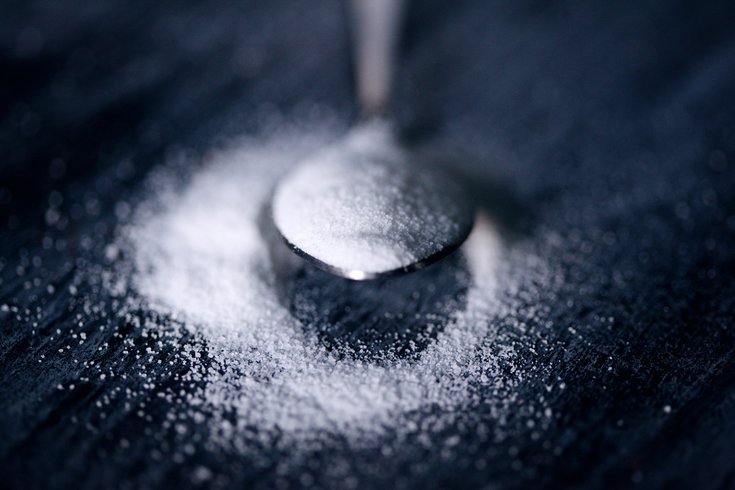
February 28, 2023
 Alexander Grey/Unsplash
Alexander Grey/Unsplash
Artificial sweeteners, such as erythritol, have been touted as healthy alternatives to table sugar because they are low-calorie and low-carbohydrate. But new research suggests erythritol may increase the risk of a heart attack or stroke.
Erythritol, an artificial sweetener used in many low-calorie and low-carbo products, may increase the risk of suffering a major cardiac event, according to a new study conducted by the Cleveland Clinic.
The researchers found that people with higher blood erythritol levels were more likely to experience heart attacks or strokes. The sugar substitute makes it easier for platelets to form blood clots. When clots break off and travel to the heart or brain, they can trigger a heart attack or a stroke.
Erythritol, a sugar alcohol, is about 70% as sweet as sugar and is produced by fermenting corn. The human body naturally creates erythritol in low amounts, but when it is consumed on a regular basis, it can accumulate in the bloodstream. Erythritol is poorly metabolized and most of it passes through the body via urine.
The study, published Monday, involved more than 4,000 people in the U.S. and Europe who were undergoing cardiac evaluation.
When people consume an artificially-sweetened beverage, high levels of the compound remain in their blood for days afterward, the researchers found. The study participants with the highest amounts of erythritol in their blood were twice as likely to suffer a heart attack or stroke than those with the lowest blood erythritol levels.
The researchers, however, cautioned that their findings are preliminary, adding that the participants in the study already had a high prevalence of heart disease. They said more research is needed to establish a causal relationship between erythritol and cardiac events, noting they only found an association.
"Sweeteners like erythritol, have rapidly increased in popularity in recent years but there needs to be more in-depth research into their long-term effects," Dr. Stanley Hazen, the study's senior author said. "Cardiovascular disease builds over time, and heart disease is the leading cause of death globally. We need to make sure the foods we eat aren't hidden contributors."
The researchers initially didn't set out to study artificial sweeteners, Hazan told The Washington Post. Initially, they were trying to identify chemicals in the blood that could determine who was at risk for a heart attack or stroke, or dying in the next three years. After finding that erythritol levels were most predictive, they designed a test for it so they could replicate their findings.
Artificial sweeteners, such as erythritol, have been touted as healthy alternatives to table sugar because they are low-calorie and low-carbohydrate. These findings are particularly troublesome because people who use artificial sweeteners the most – people with obesity, diabetes or metabolic syndrome – already are at higher risk for heart attack and stroke, the researchers said.
Sometimes erythritol is combined with other sweeteners in processed food products. Many stevia and monk fruit products contain erythritol in large amounts to give the product a more sugar-like texture and crystalline appearance. Artificial sweeteners are subject to few labeling requirements so products often do not list individual compounds.
Products with erythritol, like keto cookies and granola, are often labeled as "natural." But that term can be misleading because erythritol often is added to foods at higher levels than it is naturally found in fruits and vegetables, health experts say.
The U.S. Food & Drug Administration categorizes erythritol as "Generally Recognized As Safe," which means long-term safety studies are not required by the federal agency.
The health effects of alternative sweeteners, such as aspartame, sucralose, stevia and saccharin, have been studied for years, but research remains inconclusive. Some studies have linked them to higher calorie consumption and higher blood sugar levels, but others have found no definitive link to poor health outcomes.
"Obviously, more research is needed, but in an abundance of caution, it might make sense to limit erythritol in your diet for now," Dr. Andrew Freeman, director of cardiovascular prevention and wellness at National Jewish Health in Denver, Colorado, told CNN. He was not involved in the study.